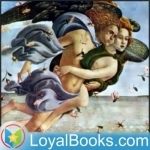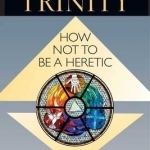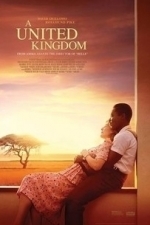Search

Myths and Legends of Ancient Greece and Rome by E.M. Berens
Podcast
Silver footed, fair haired Thetis, Ares the God of War, Nike the Goddess of Victory, The Furies and...
Rachel King (13 KP) rated Veiled Rose (Tales of Goldstone Wood, #2) in Books
Feb 11, 2019
I am always a fan of fairy re-tellings, even if it is for a fairy tale I am not actually familiar with, as that of Rose Red. It took me awhile, but I also gathered that the book is a kind of Christian allegory, and parts remind me of Pilgrim's Progress by John Bunyan.
Rose Red is by far the most intriguing character, as her birth is shrouded in mystery, her friends are animals with voices, and she cloaks herself in veils and layers to hide even the smallest scrap of skin from any prying eyes - including her own. The shame she bears for her own appearance is so great that her very existence is surrounded by grand tales of monsters and demons told by all of the local villagers, yet she bears a strength much greater than she appears to possess and she has a kind of magic that allows her to walk the secret Paths and face down death in all its forms. Even at the end of the book, I could not fully grasp who or what she is.
Leo manages to find and befriend Rose Red in boyhood, but he has a burden of his own as Prince Lionheart of Southlands, destined to become King. Leo knows his responsibilities, but he secretly just wants a friend and to make people laugh as a court jester. These polar opposites manage to pull him across the world again and again as he struggles with the simple question, "What do you want?"
Many other characters litter the pages of the book, which was at times confusing as I attempted to deduce which creature or character was on the side of good or evil, such as the Dragon - which became apparent at its occupation of Southlands. As an allegory for Christianity, some characters were clear - such as the Prince, but others were murkier, such as the Lady.
The structure of the book itself was off-putting for me. The book is divided into five parts, with chapters in each part, but in between each part a vague sense of time has passed, so that the reader cannot pick up where the last chapter left off. At each break, I would get the feeling that the plot was picking up, only to be let down that the climactic moments have been glossed over. I also really disliked the ending. Certain things are expected of classic fairy tales, and none of this was included in the ending of this book. Perhaps the author was aiming for something more "realistic" or to simply get the reader to continue the series, but loose endings this big make me feel like I wasted my time reading the book, only to get no satisfaction at the finale.
Rose Red is by far the most intriguing character, as her birth is shrouded in mystery, her friends are animals with voices, and she cloaks herself in veils and layers to hide even the smallest scrap of skin from any prying eyes - including her own. The shame she bears for her own appearance is so great that her very existence is surrounded by grand tales of monsters and demons told by all of the local villagers, yet she bears a strength much greater than she appears to possess and she has a kind of magic that allows her to walk the secret Paths and face down death in all its forms. Even at the end of the book, I could not fully grasp who or what she is.
Leo manages to find and befriend Rose Red in boyhood, but he has a burden of his own as Prince Lionheart of Southlands, destined to become King. Leo knows his responsibilities, but he secretly just wants a friend and to make people laugh as a court jester. These polar opposites manage to pull him across the world again and again as he struggles with the simple question, "What do you want?"
Many other characters litter the pages of the book, which was at times confusing as I attempted to deduce which creature or character was on the side of good or evil, such as the Dragon - which became apparent at its occupation of Southlands. As an allegory for Christianity, some characters were clear - such as the Prince, but others were murkier, such as the Lady.
The structure of the book itself was off-putting for me. The book is divided into five parts, with chapters in each part, but in between each part a vague sense of time has passed, so that the reader cannot pick up where the last chapter left off. At each break, I would get the feeling that the plot was picking up, only to be let down that the climactic moments have been glossed over. I also really disliked the ending. Certain things are expected of classic fairy tales, and none of this was included in the ending of this book. Perhaps the author was aiming for something more "realistic" or to simply get the reader to continue the series, but loose endings this big make me feel like I wasted my time reading the book, only to get no satisfaction at the finale.
Rachel King (13 KP) rated Finding the Light of Jesus in Books
Feb 11, 2019
When I first started to read this book, I realized very quickly how simply written this book is. The first ten chapters read as if I were sitting in a therapy session with the author and she were talking to me. They are written without much emphasis on detail, and seemed to focus largely on how a person feels in regards to stress and depression. Though the author writes extensively on the light of Jesus, she does not quote a single Bible verse, though she attempts to paraphrase a few - without citations. The beginning and end of each of these ten chapters also contain a poem she wrote and calls prayers, though the poetry is badly written and has little resemblance to an actual prayer, in my opinion. Also scattered through the chapters are activities that the author recommends for the reader, such as journaling and answering questions.
The final chapter is actually a collection of prayers and reflections that the reader is supposed to follow over the course of seven days. This is followed by a section of "Conversations With Jesus" that focus on different topics such as anger, jealousy, being overwhelmed, and fear. This is followed by five pages in which she quotes a scripture from the New American Bible, and leaves a blank space for the reader to journal the answers to her questions about the scripture verse. This is followed by more of her prayers and a further 30 days of prayer and reflection.
Overall, the author presents a Jesus that is only concerned about a person's feelings, whom the author seems to believe that everyone has inside of him or her from birth. She further indicates that everyone goes to heaven, and Jesus' strongest quality is being a "light." No mention is made of the basic precepts of Bible-based Christianity, such as sin, salvation, and the resurrection of Jesus Christ. Instead she writes things that seem to contradict parts of scripture, such as stating that Jesus does not judge us and that we are the "light," as well as what I previously mentioned about everyone going to heaven. In the context of that paragraph, I almost expected the author to write that we are all Jesus. I also noticed while reading that nowhere does she ever refer to Him as Jesus Christ either. The entire book has a vague New Age feel, as many of the things Tuttle writes mimic the doctrine of a New Age Jesus.
The author, Cindy Tuttle, has a background of working in the mental health industry for more than twenty-five years. Based on what I have read in this book, I have no doubt that she is good at her job and finds great success with her patients, but I do not find this book of the same calibur.
The final chapter is actually a collection of prayers and reflections that the reader is supposed to follow over the course of seven days. This is followed by a section of "Conversations With Jesus" that focus on different topics such as anger, jealousy, being overwhelmed, and fear. This is followed by five pages in which she quotes a scripture from the New American Bible, and leaves a blank space for the reader to journal the answers to her questions about the scripture verse. This is followed by more of her prayers and a further 30 days of prayer and reflection.
Overall, the author presents a Jesus that is only concerned about a person's feelings, whom the author seems to believe that everyone has inside of him or her from birth. She further indicates that everyone goes to heaven, and Jesus' strongest quality is being a "light." No mention is made of the basic precepts of Bible-based Christianity, such as sin, salvation, and the resurrection of Jesus Christ. Instead she writes things that seem to contradict parts of scripture, such as stating that Jesus does not judge us and that we are the "light," as well as what I previously mentioned about everyone going to heaven. In the context of that paragraph, I almost expected the author to write that we are all Jesus. I also noticed while reading that nowhere does she ever refer to Him as Jesus Christ either. The entire book has a vague New Age feel, as many of the things Tuttle writes mimic the doctrine of a New Age Jesus.
The author, Cindy Tuttle, has a background of working in the mental health industry for more than twenty-five years. Based on what I have read in this book, I have no doubt that she is good at her job and finds great success with her patients, but I do not find this book of the same calibur.
MaryAnn (14 KP) rated CSB Worldview Study Bible in Books
Nov 4, 2019
The CSB Worldview Study Bible features extensive worldview study notes and articles by notable Christian scholars to help Christians better understand the grand narrative and flow of Scripture within the biblical framework from which we are called to view reality and make sense of life and the world. Guided by general editors David S. Dockery and Trevin K. Wax, this Bible is an invaluable resource and study tool that will help you to discuss, defend, and clearly share with others the truth, hope, and practical compatibility of Christianity in everyday life.
Features include:
Extensive worldview study notes
Over 130 articles by notable Christian scholars
Center-column references
Smyth-sewn binding
Presentation page
Two ribbon markers
Two-piece gift box, and more
General Editors: David S. Dockery and Trevin Wax
Associate Editors: Constantine R. Campbell, E. Ray Clendenen, Eric J. Tully
Contributors include: David S. Dockery, Trevin K. Wax, Ray Van Neste, John Stonestreet, Ted Cabal, Darrell L. Bock, Mary J. Sharp, Carl R. Trueman, Bruce Riley Ashford, R. Albert Mohler Jr., William A. Dembski, Preben Vang, David K. Naugle, Jennifer A. Marshall, Aida Besancon Spencer, Paul Copan, Robert Smith Jr., Douglas Groothuis, Russell D. Moore, Mark A. Noll, Timothy George, Carla D. Sanderson, Kevin Smith, Gregory B. Forster, Choon Sam Fong, and more.
The CSB Worldview Study Bible features the highly readable, highly reliable text of the Christian Standard Bible (CSB). The CSB stays as literal as possible to the Bibles original meaning without sacrificing clarity, making it easier to engage with Scriptures life-transforming message and to share it with others.
This is a wonderful Bible that not only gives us God's word but teaches through credible editors about the Christians view of the world. There are articles that show us the Biblical view of that issue; such a: the Biblical view of music, Personal Finances. Ther is an article on how Christians should relate to the government along with various other interesting articles.
This is a great study Bible for new believers, for discipling, for those interested in how God's word relates to issues around us today. How we as Christians should respond to a world that is turning against Christians.
This is a beautiful Bible, that is easy to read and has full-color maps. This will be a great addition to anyone's library.
CSB Worldview Study Bible
I received this book free from the publisher. I was not required to write a positive review and the opinions I have expressed are my own. I am disclosing this in accordance with the Federal Trade Commissions 16 CFR, Part 255 : Guides Concerning the Use of Endorsements and Testimonials in Advertising.
Features include:
Extensive worldview study notes
Over 130 articles by notable Christian scholars
Center-column references
Smyth-sewn binding
Presentation page
Two ribbon markers
Two-piece gift box, and more
General Editors: David S. Dockery and Trevin Wax
Associate Editors: Constantine R. Campbell, E. Ray Clendenen, Eric J. Tully
Contributors include: David S. Dockery, Trevin K. Wax, Ray Van Neste, John Stonestreet, Ted Cabal, Darrell L. Bock, Mary J. Sharp, Carl R. Trueman, Bruce Riley Ashford, R. Albert Mohler Jr., William A. Dembski, Preben Vang, David K. Naugle, Jennifer A. Marshall, Aida Besancon Spencer, Paul Copan, Robert Smith Jr., Douglas Groothuis, Russell D. Moore, Mark A. Noll, Timothy George, Carla D. Sanderson, Kevin Smith, Gregory B. Forster, Choon Sam Fong, and more.
The CSB Worldview Study Bible features the highly readable, highly reliable text of the Christian Standard Bible (CSB). The CSB stays as literal as possible to the Bibles original meaning without sacrificing clarity, making it easier to engage with Scriptures life-transforming message and to share it with others.
This is a wonderful Bible that not only gives us God's word but teaches through credible editors about the Christians view of the world. There are articles that show us the Biblical view of that issue; such a: the Biblical view of music, Personal Finances. Ther is an article on how Christians should relate to the government along with various other interesting articles.
This is a great study Bible for new believers, for discipling, for those interested in how God's word relates to issues around us today. How we as Christians should respond to a world that is turning against Christians.
This is a beautiful Bible, that is easy to read and has full-color maps. This will be a great addition to anyone's library.
CSB Worldview Study Bible
I received this book free from the publisher. I was not required to write a positive review and the opinions I have expressed are my own. I am disclosing this in accordance with the Federal Trade Commissions 16 CFR, Part 255 : Guides Concerning the Use of Endorsements and Testimonials in Advertising.

The Trinity: How Not to be a Heretic
Book
"Trinity" is Christianity's most basic description of who God actually is-and who he needs to be in...

Expanded Lovemaking: Sex, Love, and Consciousness
Podcast
Enjoy juicy and informative interviews with the acclaimed author Dr. Patti Taylor of...

Bible from eBible.com with NIV NKJV KJV ESV NLT Amplified Message Chinese Spanish
Reference and Book
App
Super fast search and navigation. NIV, NKJV, KJV, ESV, NLT, Amplified, The Message and more. Get...
Rachel King (13 KP) rated A Short History of Myth in Books
Feb 11, 2019
For such a short book, I developed quite a strong opinion about the text while reading it. I have been curious about Armstrong's writings for a long time, but this is the first attempt I have made at actually reading anything by her. I have always been a fan of ancient mythology, such as Greek and Egyptian, so this seemed like an easy choice.
In seven chapters, Armstrong takes a simplified stroll through history, focusing on the concept of myth and its impact on civilization. All throughout the book, she attempts to support her claim that a person can believe in myths without believing that the myths are actually true, and that the failure of modern society is by not following her specific edict. While this notion strikes me as absurd, I keep reading because, hey, it's a short book.
While I know only bits and pieces about many of the world's religions, I do know both the history and the holy book of my religion, Christianity. It becomes apparent to me early in the text that she is masking her opinions and interpretations of this religion as actual fact, so I can only imagine how she misconstrues other religions.
Her citations were lacking to me, with many claims going unsupported, others only partially supported, such as citation #84 and #30, and some citations simply not even applying to the specified text, such as citation #87. In citation #55, she claims that the Bible contains a Creation myth in which God brings the world into being by killing a sea monster, but one of the four verses she cites make no reference to anything of the sort (Job 3:12), and the other three (Isaiah 27:1, Job 26:13, Psalm 74:14) that do mention a leviathan cannot be interpreted that way when read in context. Isaiah is describing the end of days, while Job merely says that God created the serpent, and the verse in Psalm is within the context of a song about God rescuing the Hebrews from Egyptian slavery -- no relevancy to Creation. She makes the claim that Paul "was not much interested in Jesus's teachings, which he rarely quotes, or in the events of his earthly life." This claim is easily disproved by examining how Paul's words line up with Jesus's in John 5:21 vs. 1 Corinthians 15:22, Matthew 6:25 vs. Philippians 4:6, and many other passages.
While going through the citations, I got the feeling that the author depended on secondary sources for her information without actually studying the original source of her information. The book struck me as highly opinionated, vague, and too general for the topic being addressed. I have no doubt that there are better and more thorough books available on the topic of myth. I do not believe that I will be reading any more of Armstrong's works in the future.
In seven chapters, Armstrong takes a simplified stroll through history, focusing on the concept of myth and its impact on civilization. All throughout the book, she attempts to support her claim that a person can believe in myths without believing that the myths are actually true, and that the failure of modern society is by not following her specific edict. While this notion strikes me as absurd, I keep reading because, hey, it's a short book.
While I know only bits and pieces about many of the world's religions, I do know both the history and the holy book of my religion, Christianity. It becomes apparent to me early in the text that she is masking her opinions and interpretations of this religion as actual fact, so I can only imagine how she misconstrues other religions.
Her citations were lacking to me, with many claims going unsupported, others only partially supported, such as citation #84 and #30, and some citations simply not even applying to the specified text, such as citation #87. In citation #55, she claims that the Bible contains a Creation myth in which God brings the world into being by killing a sea monster, but one of the four verses she cites make no reference to anything of the sort (Job 3:12), and the other three (Isaiah 27:1, Job 26:13, Psalm 74:14) that do mention a leviathan cannot be interpreted that way when read in context. Isaiah is describing the end of days, while Job merely says that God created the serpent, and the verse in Psalm is within the context of a song about God rescuing the Hebrews from Egyptian slavery -- no relevancy to Creation. She makes the claim that Paul "was not much interested in Jesus's teachings, which he rarely quotes, or in the events of his earthly life." This claim is easily disproved by examining how Paul's words line up with Jesus's in John 5:21 vs. 1 Corinthians 15:22, Matthew 6:25 vs. Philippians 4:6, and many other passages.
While going through the citations, I got the feeling that the author depended on secondary sources for her information without actually studying the original source of her information. The book struck me as highly opinionated, vague, and too general for the topic being addressed. I have no doubt that there are better and more thorough books available on the topic of myth. I do not believe that I will be reading any more of Armstrong's works in the future.
Darren (1599 KP) rated A United Kingdom (2017) in Movies
Jun 20, 2019
Story: A Untied Kingdom starts in 1947 England where Prince Seretse Khama (Oyelowo) of Bechuanaland (known today as Botswana) is in England studying law, he meets file clerk Ruth Williams (Pike) and the two fall in love.
With tension between Bechuanaland and South Africa high the idea of the soon to be King marrying a white woman would be unheard off. The British government doesn’t want him to become king and Seretse own family don’t want him to become king if he stays with Ruth. With the racial divide still going strong, Seretse pushed for equality over anything else, so he can unite his kingdom when he becomes king.
Thoughts on A United Kingdom
Characters – Seretse Khama is the prince of Bechuanaland he has been studying law in England to prepare for his time as king, he falls in love a white woman in Ruth Williams which throws tensions from his family, government in the air and to prove his love is more important than his traditions and bring the equality between the races together. Ruth Williams is an English clerk whose family has been working to teach Christianity to Africans, she meets and falls in love with Seretse and goes against everyone else’s desires and marries him. Rufus Lancaster is the British liaison in Bechuanaland who leads the opposition from the land, which only shows us just how the English were over controlling.
Performances – David Oyelowo is wonderful in the leading role, showing us once again that he can lead any movie he wants too. Rosamund Pike shines to showing everyone that she can handle to calm roles after the psycho ones in Gone Girl. The rest of the cast are wonderful even if the British characters are as stuck up as you would imagine them to be.
Story – The story follows the lives of King Seretse who marries an English white woman which puts the balance between the racial tension in his home land and British rule. We learn a lot from this movie, because we see how the country was being controlled from outside forces that only saw them as a piece of land. There is a lot to take in and the history lesson about this union that created a chance in the land.
Biopic/Romance – What King Seretse and his wife Ruth achieved for Botswana was incredible and this shows us how their love drove them to achieve this change.
Settings – The settings show us the high society British look at an African country that was following its own traditions to become the independent from this style of rule.
Scene of the Movie – Speech to the ‘tribe’ as the British called them.
That Moment That Annoyed Me – Knowing the English were this shallow.
Final Thoughts – This is a good look at how the world was once ruled by people who believe they are in the right to control countries affairs and how their union would change everything.
Overall: History is always worth learning.
https://moviesreview101.com/2019/05/21/abc-film-challenge-biopics-u-a-united-kingdom-2016/
With tension between Bechuanaland and South Africa high the idea of the soon to be King marrying a white woman would be unheard off. The British government doesn’t want him to become king and Seretse own family don’t want him to become king if he stays with Ruth. With the racial divide still going strong, Seretse pushed for equality over anything else, so he can unite his kingdom when he becomes king.
Thoughts on A United Kingdom
Characters – Seretse Khama is the prince of Bechuanaland he has been studying law in England to prepare for his time as king, he falls in love a white woman in Ruth Williams which throws tensions from his family, government in the air and to prove his love is more important than his traditions and bring the equality between the races together. Ruth Williams is an English clerk whose family has been working to teach Christianity to Africans, she meets and falls in love with Seretse and goes against everyone else’s desires and marries him. Rufus Lancaster is the British liaison in Bechuanaland who leads the opposition from the land, which only shows us just how the English were over controlling.
Performances – David Oyelowo is wonderful in the leading role, showing us once again that he can lead any movie he wants too. Rosamund Pike shines to showing everyone that she can handle to calm roles after the psycho ones in Gone Girl. The rest of the cast are wonderful even if the British characters are as stuck up as you would imagine them to be.
Story – The story follows the lives of King Seretse who marries an English white woman which puts the balance between the racial tension in his home land and British rule. We learn a lot from this movie, because we see how the country was being controlled from outside forces that only saw them as a piece of land. There is a lot to take in and the history lesson about this union that created a chance in the land.
Biopic/Romance – What King Seretse and his wife Ruth achieved for Botswana was incredible and this shows us how their love drove them to achieve this change.
Settings – The settings show us the high society British look at an African country that was following its own traditions to become the independent from this style of rule.
Scene of the Movie – Speech to the ‘tribe’ as the British called them.
That Moment That Annoyed Me – Knowing the English were this shallow.
Final Thoughts – This is a good look at how the world was once ruled by people who believe they are in the right to control countries affairs and how their union would change everything.
Overall: History is always worth learning.
https://moviesreview101.com/2019/05/21/abc-film-challenge-biopics-u-a-united-kingdom-2016/
Rachel King (13 KP) rated Blue in Books
Feb 11, 2019
Getting into this book was a tad slow since there was alot of back story to get through before I felt like I understood what was occurring in the present time of the book. Once I got through that, there were a few things that I could easily predict about the plot. First, the plot would very much favor the father over the mother in regards to the relationship shared with the main character, fourteen-year-old Becky. Second, it is inevitable that Becky's leukemia is going to relapse. Third, this fantasy world of Tamarisk would somehow play a part in both Becky's disease and her parent's ugly divorce.
What I could not predict was how absolutely fascinating the world of Tamarisk is. I actually thought about researching all of the made-up names of the plants, animals, and geology before I completely realized the depth of creativity to which Becky and her father Chris went in the creation of this fantasy world. What began as a coping mechanism for a young child going through the rigors of chemotherapy became a world in an alternate universe that existed with its own laws of physics. I was completely enthralled by this unbelievable world of blue foliage, black dirt, microfarming, moldable crystal, smelling of chocolate and raspberries, and featuring transportation in the form of giant flying birds - and that is only the beginning of all that this world holds to tantalize the senses and ignite the imagination. Becky's voyages into Tamarisk alone are enough to fill countless children's stories that would hold any grown adult rapt with wonder.
On the alternate side of this fantastic world is the grievous reality of the ongoing feud between Chris and Polly, Becky's divorced parents. Even though Polly has remarried, she still harbors intensely negative feelings towards Chris. In addition, Chris's whole life is about finding ways to connect with Becky better, as the reader watches him fail at blind date after blind date. Becky wants so badly to hang onto her life that she lives in denial of her increasingly-severe symptoms. My heart went out to all of the characters at different points as I connected with the different emotions and situations. As a mother, I can not even fathom one of my children going through the horrors of childhood cancer, and as a wife, the thought of abandoning my spouse is inconceivable, especially during such a difficult time. My heart broke for Becky's best friend Lonnie, and I felt the awkward sadness of Becky's stepfather Al. These characters are as real as if this story were not fiction, but a memoir or biography.
I could not help noticing the parallels between belief in Tamarisk and the beliefs of Christianity. Polly either could not or would not believe in Tamarisk, and many of her arguments against it matched the common ones against a belief in the existence of God and Heaven.
The ending was bittersweet, but light on bitter and rich on sweet. I shed a tear, but Chris's perspective was very fitting for how I felt about this conclusion. This was a very, very good read that would enrich any reader's book collection. What I gained from this book will stick with me for a long time to come.
What I could not predict was how absolutely fascinating the world of Tamarisk is. I actually thought about researching all of the made-up names of the plants, animals, and geology before I completely realized the depth of creativity to which Becky and her father Chris went in the creation of this fantasy world. What began as a coping mechanism for a young child going through the rigors of chemotherapy became a world in an alternate universe that existed with its own laws of physics. I was completely enthralled by this unbelievable world of blue foliage, black dirt, microfarming, moldable crystal, smelling of chocolate and raspberries, and featuring transportation in the form of giant flying birds - and that is only the beginning of all that this world holds to tantalize the senses and ignite the imagination. Becky's voyages into Tamarisk alone are enough to fill countless children's stories that would hold any grown adult rapt with wonder.
On the alternate side of this fantastic world is the grievous reality of the ongoing feud between Chris and Polly, Becky's divorced parents. Even though Polly has remarried, she still harbors intensely negative feelings towards Chris. In addition, Chris's whole life is about finding ways to connect with Becky better, as the reader watches him fail at blind date after blind date. Becky wants so badly to hang onto her life that she lives in denial of her increasingly-severe symptoms. My heart went out to all of the characters at different points as I connected with the different emotions and situations. As a mother, I can not even fathom one of my children going through the horrors of childhood cancer, and as a wife, the thought of abandoning my spouse is inconceivable, especially during such a difficult time. My heart broke for Becky's best friend Lonnie, and I felt the awkward sadness of Becky's stepfather Al. These characters are as real as if this story were not fiction, but a memoir or biography.
I could not help noticing the parallels between belief in Tamarisk and the beliefs of Christianity. Polly either could not or would not believe in Tamarisk, and many of her arguments against it matched the common ones against a belief in the existence of God and Heaven.
The ending was bittersweet, but light on bitter and rich on sweet. I shed a tear, but Chris's perspective was very fitting for how I felt about this conclusion. This was a very, very good read that would enrich any reader's book collection. What I gained from this book will stick with me for a long time to come.


